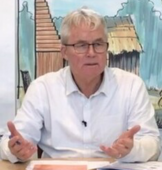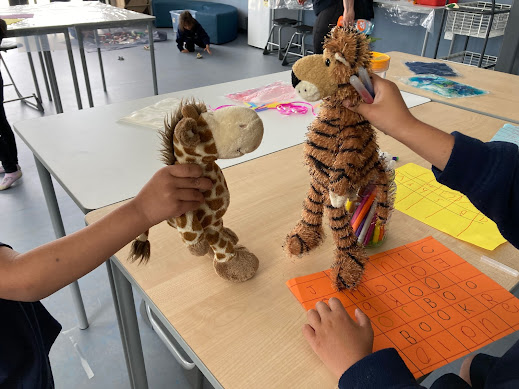SHARP Reading with Hilton Ayrey
This year Park Estate School is launching the SHARP reading programme across the school.
SHARP stands for: success, habitual, autonomous, routines and progressions.
My summary of the SHARP reading workshop: It gives the teacher a set of routines and a script to prompt students to unpack a small amount of text and understand it really well. It seeks to develop active readers who 'wake up their brains' and clearly articulate what a sentence means.
I've done a fair share of reading PLD over the last 12 years, and I was keen to add some more skills to my kete.
At a personal level:
I like the structure and routine (no surprises).
I like the simplicity, not trying to do everything at once.
I like that it seems to be evidence based and have some good results behind it.
I like the focus on developing good reading habits.
I like the element of challenge and in-built self assessment.
I like how SHARP reading provides for lots of independent practise for students.
I like how SHARP reading focuses on getting the kids talking and the teacher not talking.
Questions:
- Will the kids get bored? Will I get bored? I love trying new things, even if the old way worked well, so being locked into such a structured process is daunting.
- I've been taught that it's important to give students access to BOTH lower order and higher order thinking skills by entering through the lower order but give EVERYONE access to higher order thinking. How could SHARP reading cater to this? I'm guessing that it will mostly be the 'high achieving' students who get to do the higher order thinking (and thus the status quo is reinforced for our 'not-high-achieving-yet students').
- Does SHARP reading expose our Year 0-3 students to comprehension strategies? Preschoolers can do comprehension strategies (retell, predict, ask questions etc), so why wait until they are Year 4??
- Do ability groupings work?? (from an equity viewpoint)
- Do all texts have to be unpacked like a legal contract? When I have to study something complex, I do unpack sentences carefully. When I read a novel, it's the characters and plot that engage me and skimming over some things is ok. E.g. Lord of the Rings. If I had to go back and understand everything in that, I would have given up long before I finished it. But I could enjoy the parts I could understand and realise there was a lot more in there than I could get my head around.



Kia ora Simon. It's interesting as I had the same concerns in regards to this programme i.e. are we going backwards in our practice. I think it's important for us to see this as an aspect of our reading programme. It's 40 minutes a day and we would expect that there are many other opportunities to explore literacy throughout the day in a range of contexts with a range of peers. It will be interesting to see how this works for our students who in the past were reluctant to participate in guiding reading.
ReplyDeleteThanks for the thoughts Michelle. That is really helpful to know - that Sharp Reading is a part of a wider literacy programme. I love that line, "throughout the day In a range of contexts with a range of peers". Education meme right there!!
ReplyDeleteI am on this journey with you Simon, good to have you on board.
ReplyDelete